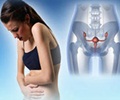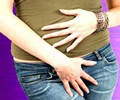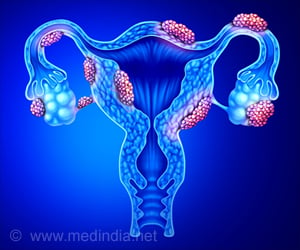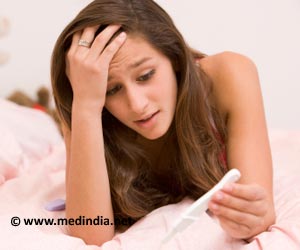Electroacupuncture involving small of the back and the back part of the pelvis between the hips can be effective for women with Stress urinary incontinence.

‘The most common cause of anovulatory infertility is Polycystic ovary syndrome (PCOS), which affects 5 percent to 10 percent of women of reproductive age.’





Baoyan Liu, M.D., of the China Academy of Chinese Medical Sciences, Beijing, China, and colleagues randomly assigned 504 women with SUI to receive 18 sessions (over 6 weeks) of electroacupuncture involving the lumbosacral region (n = 252) or sham electroacupuncture (n = 252) with no skin penetration on sham acupoints. For the electroacupuncture, paired electrodes were attached to needle handles; stimulation lasted for 30 minutes with a continuous wave of 50 Hz and a current intensity of 1 to 5 mA.
Among the randomized participants, 482 completed the study. The researchers found that at week six, the electroacupuncture group had a greater decrease in average urine leakage than the sham electroacupuncture group. The effects persisted 24 weeks after treatment. The incidence of adverse events was low.
"Further research is needed to understand long-term efficacy and the mechanism of action of this intervention," the authors write. Limitations of the study are noted in the article.
In another study, Xiao-Ke Wu, M.D., Ph.D., of Heilongjiang University of Chinese Medicine, Harbin, China, and colleagues randomly assigned 1,000 women with polycystic ovary syndrome to active or control acupuncture administered twice a week and clomiphene or placebo administered for five days per cycle, for up to four cycles.
Advertisement
Clomiphene citrate is a first-line, inexpensive treatment to induce ovulation in women with PCOS; however, it has had a high failure rate. New treatments are needed for this population.
Advertisement
In this study, the active acupuncture group received deep needle insertion with combined manual and low-frequency electrical stimulation; the control acupuncture group received superficial needle insertion, no manual stimulation, and mock electricity.
Among the women in the study, 250 were randomized to each group; a total of 926 women (93 percent) completed the trial.
The researchers found that the live birth rate was significantly higher in the women treated with clomiphene than with placebo (28.7 percent vs 15.4 percent) and not significantly different between women treated with active vs control acupuncture (21.8 percent vs 22.4 percent).
"This finding does not support acupuncture as an infertility treatment in such women," the authors write.
A limitation of the study was the fixed acupuncture protocol; personalized acupuncture treatment might have been more effective.
Source-Eurekalert














